
After years of joy, exploration, and learning, The Discovery School will close its doors at the end of this school year. While The Discovery School is closing, the Bay Area Discovery Museum remains a place for children and families to grow, connect, and discover together.
To all the families who shared their children’s early years with us: thank you. We look forward to welcoming you back for new discoveries at the museum.
Program Details
The Discovery School is licensed as a childcare center by the State of California, with fully qualified teachers and a low staff-to-child ratio, ensuring personalized attention for every child. To join us, children need to be 3 years old by September 1 of the school year they’re enrolling in. We also require that children are toilet-independent, as our program is designed for children ready for this next stage of independence.
Annual School Schedule
September – May
5 days, Monday – Friday, from 8:30AM – 1PM
Extended Care: Monday – Thursday, from 1 – 4PM
Limited Extended Care spots are available.
Daily Flow
We value time for pursuing interests, developing relationships, and engaging in imaginative play and exploration with open-ended materials. We regularly spend time having group meetings (circle time), exploring outside, sharing stories, singing songs, engaging in small group work, and eating a snack and lunch.
- Arrival
- Classroom Self-Directed Exploration and Small Groups
- Community Meeting
- Outdoor Play & Exploration
- Lunch
- Pick up
Tuition
2024-25 tuition is $25,312
Extended Care is $12,133.
Our Approach
Rooted in the Reggio Emilia philosophy, we view children as capable and curious learners. Our educators, seen as researchers in their own right, use child development research to shape their practice, forming a strong partnership with families. The classroom environment itself is thoughtfully designed to act as a “third teacher,” providing materials and spaces that encourage exploration and creativity.
Our Reggio-inspired approach focuses on the whole child—physical, cognitive, and social-emotional development. Through joyful learning and collaborative play, we create opportunities for children to grow and thrive. Strong relationships are at the heart of our community, building a safe and nurturing space where children feel supported and valued.
Curriculum
The Discovery School, along with the museum and Fort Baker, invites children to explore and theorize about the world around them. Opportunities for imagination, creativity, and problem-solving empower children while providing collaborative, social constructivist learning experiences. Our inquiry-based curriculum is co-constructed between children and educators, informed by documentation of daily explorations. These experiences develop language, literacy, arts, science, math, and engineering skills, and thoughtfully integrate technology to boost engagement and creativity.
Access to Fort Baker extends learning into nature, fostering environmental stewardship and deepening children’s connection with the natural world. Backed by research, our curriculum cultivates language, cognitive, social-emotional, and physical development, while embracing the joy of these formative years.
Documentation and Reflection
Throughout the TDS school year, educators maintain thorough and reflective documentation which guides their planning and assessment. This practice ensures that the learning that happens within the classroom is visible to everyone. Parents and families are necessarily included in the documentation process, and bi-monthly reflections become part of an ongoing conversation between parents, children, teachers, and peers.
Outdoor Exploration
Spending time outside is central to TDS’s approach to creative learning. During the school year, TDS students spend time outdoors, exploring the beaches and habitats of our Fort Baker location, which fosters a deep connection to the natural world. Our students all have access to all of the resources and exhibits of our museum home, including exclusive access on Mondays, when Bay Area Discovery Museum is closed to the public. Our students have access to all of the resources and exhibits of our museum home, including exclusive access on Mondays and Tuesdays when Bay Area Discovery Museum is closed to the public.
Laboratory School
In fall 2016, TDS became an official laboratory school, or lab school. As a lab school, TDS welcomes top university researchers who are studying child development in a preschool setting. The lessons and research that come out of our preschool will shape the national dialogue on how educators design experiences to set kids up for lifelong success. Our status as a lab school also benefits TDS teachers. They have access to cutting edge research from the leading thinkers in cognitive development and early childhood education, which gives them the opportunity to implement this innovative research immediately in the classroom.
FAQs
Will children learn academic skills at The Discovery School?
We believe that our unique educational approach, which offers free-choice learning in an open-ended, child-directed environment, prepares children for lifelong learning. Through our emergent project-based curriculum, kids use math, literacy, creative problem-solving, and social skills to create the meaningful learning experiences they will need for later academic success.
When should I apply for The Discovery School?
You can apply for your child to attend TDS one year before their school year will start. If your child is younger, please fill out an inquiry so we can follow up with you when your child is eligible to apply!
How are students selected?
Once we receive completed applications, our staff determines which families are the best match for the program. Factors include scheduling, age of child, philosophical harmony, and gender balance of program.
What elementary schools have students of The Discovery School been accepted to?
The Discovery School students have been accepted to the following elementary schools:
- Greenwood
- Lycee Francais- French School
- Manor
- Marin Country Day
- Marin Primary
- Park Elementary
- Presidio Hill School
- Reed Public School
- SF Public
- Saint Luke’s
- SF Friends School
- The Garden House
- The Nueva School
Do you serve snacks or lunch?
At this time, we do not provide snack or lunch. Children must bring their own lunch and snack from home.
Is there a discount for enrolling multiple children in TDS?
We offer a $1,000 discount when a family enrolls siblings for the same school year.
For more information, please contact The Discovery School at tds@badm.org.
The Discovery School Staff
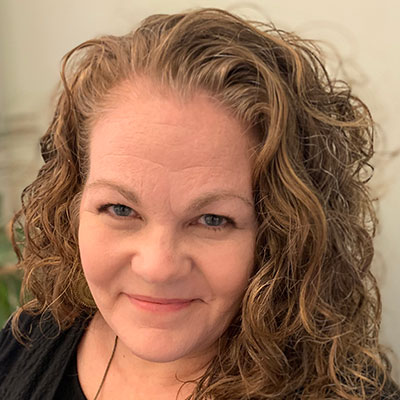
Sandra Harris
School Director
Sandra joined TDS in 2018 with over 30 years of experience as a mentor and educator. She holds a B.A. in Early Childhood Education from Webster University, where she studied art and progressive pedagogy with a focus on the Reggio Emilia philosophy. Sandra is an advocate for the rights of all children to have joyful, inspiring, and empowering environments to play, to learn, to grow and to thrive.
In her spare time, Sandra enjoys being out in nature with friends exploring the Marin and Sonoma coastlines. She is also a part-time treasure hunter: searching antique stores and vintage shops for storied objects of art and design.
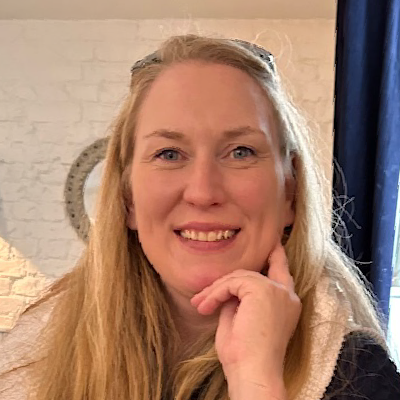
Ina Reilly
Associate Director of Operations
Ina Reilly joined TDS in August 2024. She holds a Master’s Degree in Early Childhood education from San Francisco State University and has experienced working with children for the past 20 years. She is passionate about providing a safe and nurturing environment for children to help them learn and discover their full potential.
In her free time, Ina enjoys spending time with her husband and daughter exploring the Bay Area and traveling abroad.
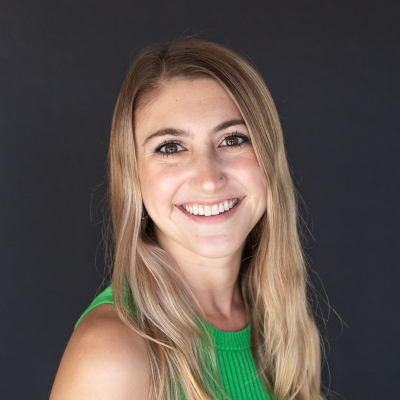
Marisa Robinow
Lead Teacher
Marisa joined TDS the spring of 2023 after graduating from the University of Oregon with a B.A. in Sociology and Family and Human Services. She has worked with children for as long as she can remember, but most recently has been teaching preschool for three years. Marisa strives to provide a nurturing environment where children feel supported and capable in their exploration of learning.
Marisa is a Marin County native turned San Franciscan who loves to spend time with her family and friends. She has a passion for travel and exploration, and is always looking for new places and restaurants to visit.
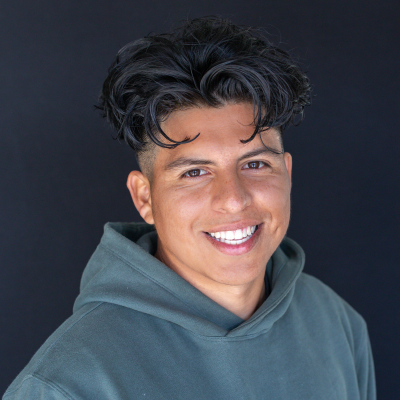
Luis Perez Diaz
Associate Teacher
Luis joined TDS in 2022 after graduating with an Associate Degree in Early Childhood Education from the College of Marin. Whether he is coaching, camp counseling, or teaching youth, Luis’ approach is always to meet each student’s needs. Luis believes that families and programs thrive in partnership, which means everyone feels a sense of belonging and trusts that they are a valued participant of the community. Through student teaching at the College of Marin, Luis learned that open-ended play fosters imagination, creativity, and growth.
Outside of TDS, Luis enjoys coaching soccer and spending time with his family. Luis is bilingual in Spanish and English.
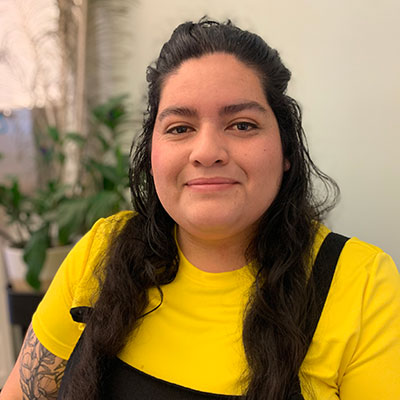
Karla O’Brian
Associate Teacher
Before joining TDS in 2021, Karla spent two years as an assistant preschool teacher at the College of Marin (where she studied Early Childhood Education) after graduating with a B.A. in foreign languages from University of Colima, Mexico. Karla believes that children are the protagonists of their learning, and encourages children’s interests to guide their exploration of the world. Karla sees herself as a learner, a researcher, and collaborator in community with the children at TDS.
In her spare time, Karla enjoys being outdoors, exploring hiking trails, riding her bike and using her new camera to take pictures of wildflowers during her adventures.



